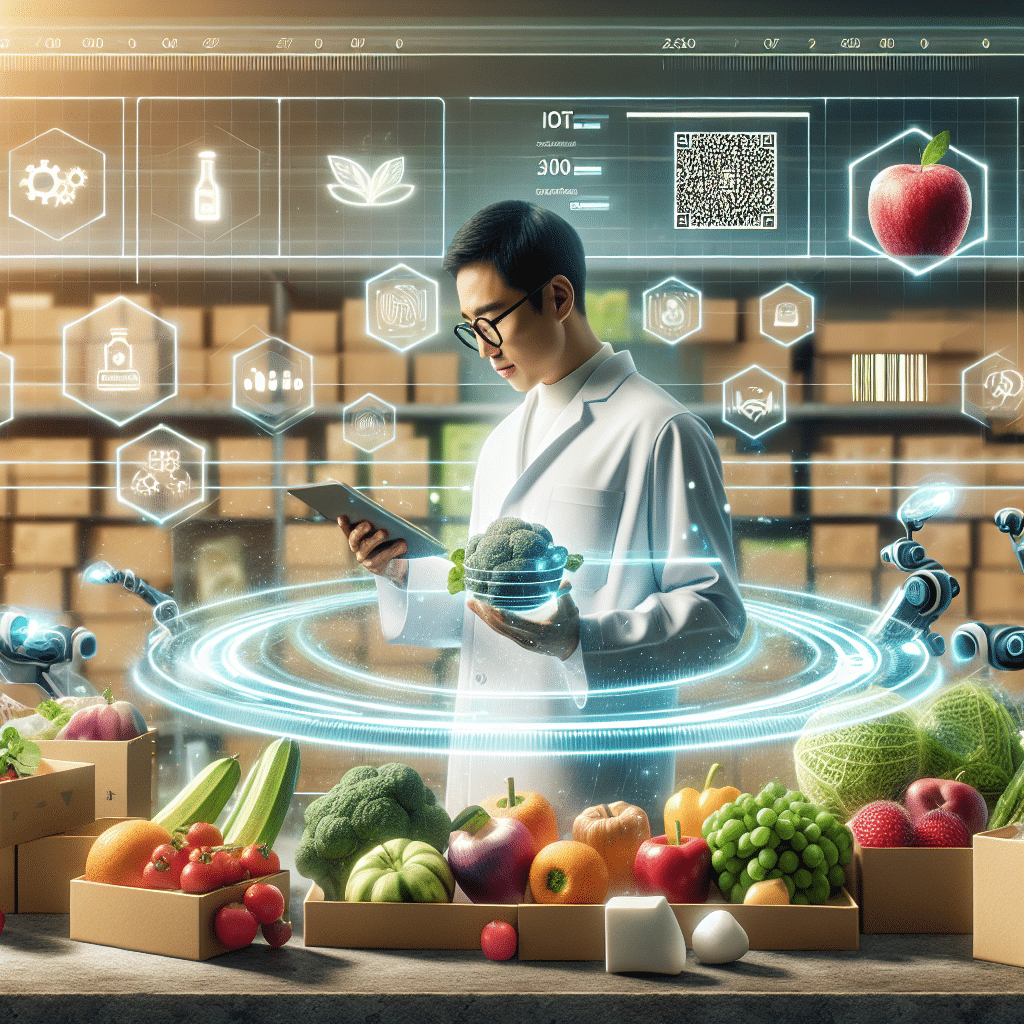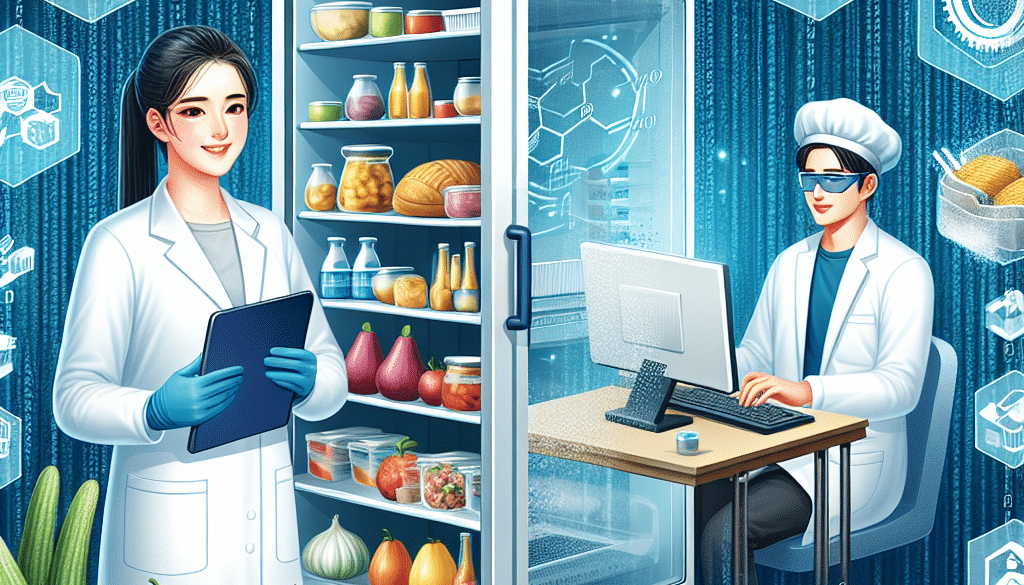The Digital Age of Food Safety and Quality
-
Table of Contents
- Digital Age Revolutionizes Food Safety and Quality
- The Emergence of Digital Technologies in Food Safety
- Statistical Insights into Food Safety and Quality
- Advancements in Digital Food Quality Assurance
- Challenges and Opportunities in the Digital Transformation
- Conclusion: Embracing the Future of Food Safety and Quality
- ETprotein: Enhancing Nutrition with High-Quality Protein Products
Digital Age Revolutionizes Food Safety and Quality

The food industry has always been a cornerstone of human civilization, but with the advent of the digital age, it has undergone a transformation unlike any other. The integration of digital technologies in food safety and quality management has not only enhanced efficiency but also significantly improved the standards of what we consume. This article delves into the various facets of the digital age that are reshaping food safety and quality, offering insights into the future of food consumption.
The Emergence of Digital Technologies in Food Safety
Food safety is a critical concern for consumers, producers, and regulators alike. The digital age has introduced a range of technologies that have revolutionized the way food safety is managed. From farm to fork, digital tools are being employed to ensure that the food we eat is free from contaminants and is of the highest quality.
- Blockchain for Traceability: Blockchain technology has emerged as a powerful tool for enhancing traceability in the food supply chain. It creates an immutable record of every transaction, making it possible to track the journey of food products from their origin to the consumer.
- Internet of Things (IoT) Sensors: IoT sensors are being used to monitor conditions such as temperature and humidity during food storage and transportation. This real-time data helps in preventing spoilage and ensuring that food products remain safe for consumption.
- Artificial Intelligence (AI) in Quality Control: AI algorithms are being deployed to detect defects and contaminants in food products. Machine learning models can analyze images and data to identify issues that might be missed by human inspectors.
Statistical Insights into Food Safety and Quality
Statistics highlight the impact of digital technologies on food safety and quality. According to a report by MarketsandMarkets, the global food traceability market size is projected to grow from USD 14.1 billion in 2020 to USD 21.2 billion by 2025, at a CAGR of 8.4%. This growth is indicative of the increasing adoption of digital solutions in the food industry.
Furthermore, a survey by the Global Food Safety Initiative (GFSI) found that 33% of food companies are using technology to enhance food safety, with another 40% planning to do so in the near future. These figures underscore the growing reliance on digital tools for maintaining food quality standards.
Advancements in Digital Food Quality Assurance
Quality assurance in the food industry is not just about compliance; it’s about exceeding consumer expectations. Digital advancements have paved the way for more sophisticated methods of ensuring food quality.
- Smart Packaging: Innovations in packaging include QR codes and NFC tags that provide consumers with information about the product’s journey, ingredients, and freshness.
- Automated Compliance: Digital solutions automate the compliance process, making it easier for food businesses to adhere to regulatory standards and reduce the risk of human error.
- Data Analytics: Big data analytics allows for the analysis of vast amounts of information to identify patterns and predict potential quality issues before they arise.
Challenges and Opportunities in the Digital Transformation
While the digital transformation of food safety and quality presents numerous opportunities, it also comes with its set of challenges. Cybersecurity concerns, the need for standardization, and the digital divide between large and small players are some of the hurdles that need to be addressed. However, the potential benefits, such as enhanced consumer trust, reduced waste, and improved public health, make the pursuit of digital excellence in food safety and quality a worthwhile endeavor.
Conclusion: Embracing the Future of Food Safety and Quality
The digital age has brought about a paradigm shift in how we approach food safety and quality. With the integration of technologies like blockchain, IoT, and AI, the food industry is becoming more transparent, efficient, and reliable. As we continue to innovate and adopt these digital tools, we can expect to see a future where food safety and quality are guaranteed, and consumers can enjoy their meals with greater peace of mind.
ETprotein: Enhancing Nutrition with High-Quality Protein Products
In line with the advancements in food safety and quality, ETprotein is at the forefront of providing high-quality protein products that meet the stringent standards of the digital age. Their range of organic bulk vegan proteins and L-(+)-Ergothioneine (EGT) products cater to various industries, ensuring that consumers receive the best in nutrition and safety.
ETprotein’s commitment to non-GMO, allergen-free, and high-purity ingredients aligns with the modern consumer’s demand for transparency and quality in their food products. Whether for nutraceuticals, sports nutrition, or general health and wellness, ETprotein’s offerings are a testament to the positive impact of digital technologies on food safety and quality.
About ETprotein:
ETprotein, a reputable protein and L-(+)-Ergothioneine (EGT) Chinese factory manufacturer and supplier, is renowned for producing, stocking, exporting, and delivering the highest quality organic bulk vegan proteins and L-(+)-Ergothioneine. They include Organic rice protein, clear rice protein, pea protein, clear pea protein, watermelon seed protein, pumpkin seed protein, sunflower seed protein, mung bean protein, peanut protein, and L-(+)-Ergothioneine EGT Pharmaceutical grade, L-(+)-Ergothioneine EGT food grade, L-(+)-Ergothioneine EGT cosmetic grade, L-(+)-Ergothioneine EGT reference grade and L-(+)-Ergothioneine EGT standard. Their offerings, characterized by a neutral taste, non-GMO, allergen-free attributes, with L-(+)-Ergothioneine purity over 98%, 99%, cater to a diverse range of industries. They serve nutraceutical, pharmaceutical, cosmeceutical, veterinary, as well as food and beverage finished product distributors, traders, and manufacturers across Europe, USA, Canada, Australia, Thailand, Japan, Korea, Brazil, and Chile, among others.
ETprotein specialization includes exporting and delivering tailor-made protein powder and finished nutritional supplements. Their extensive product range covers sectors like Food and Beverage, Sports Nutrition, Weight Management, Dietary Supplements, Health and Wellness Products, and Infant Formula, ensuring comprehensive solutions to meet all your protein needs.
As a trusted company by leading global food and beverage brands and Fortune 500 companies, ETprotein reinforces China’s reputation in the global arena. For more information or to sample their products, please contact them and email sales(at)ETprotein.com today.














